For Palestrina’s Missa Papae Marcelli, go to the Naxos Music Library,
via Naxos Library of Recorded Music via the Hesburgh Library
and type in 8.550573.
Giovanni Pierluigi da Palestrina - Missa Papae Marcelli
(1567)
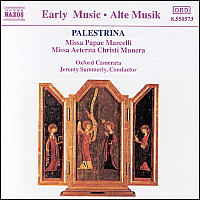
Oxford Camerata
Jeremy Summerly, Director
|
In Volume III of his Syntagma musicum (1619), Michael Praetorius, a champion of the new style of monodic music, approvingly translates the following passage from Agostino Agazzari’s Del sonare sopra il basso con tutti gli strumenti (Siena, 1607): “I should like to say that because the correct way of portraying the text has only recently been invented, one sings as nearly as possible as if one were speaking with someone. This is most successful with a single voice, or at best a few, as in the compositions of a number of eminent people today; and as it is done in Rome with great frequency at the present time. It is not necessary to write everything down or put it in tablature, but rather to indicate the signs over the plain bass line. If one were to tell me that the old motets and pieces that are full of imitations and counterpoints had inadequate basses, I would respond that such and similar compositions are no longer common with us owing to the confusion and garbling of the text and words resulting from the long and interweaving imitations. Anyway, this style has no real joy and charm, for when all the parts are sung, one hears neither the sentence nor the meaning, due to the interruptions caused by the constant repetition of the imitations, and because each voice sings separate and different words at the same time, which does not please discerning people who are paying attention to this. For this reason it would not have taken much for a pope to have completely and utterly abolished music from the church, had it not been for Giovanni Palestrina, who took the situation in hand and demonstrated that the shortcoming lay with the composers and not with the art of music. In order to substantiate this he composed a Mass called Missa Papae Marcelli. For although such compositions are well composed, according to the rules of counterpoint, they are not considered good according to the principles of good and true music." (Translation of Praetorius’s German translation of Agazzari’s Italian by Jeffery T. Kite-Powell, [Michael Praetorius:] Syntagma Musicum III (Oxford University Press, 2004), p. 154. An English translation of the same passage directly from the Italian may be found in Lewis Lockwood, ed., Palestrina: Pope Marcellus Mass: An Authoritative Score, Backgrounds and Sources, History and Analysis, Views and Comments, Norton Critical Scores (New York: W.W. Norton & Co., 1975), pp. 10-16.)
|
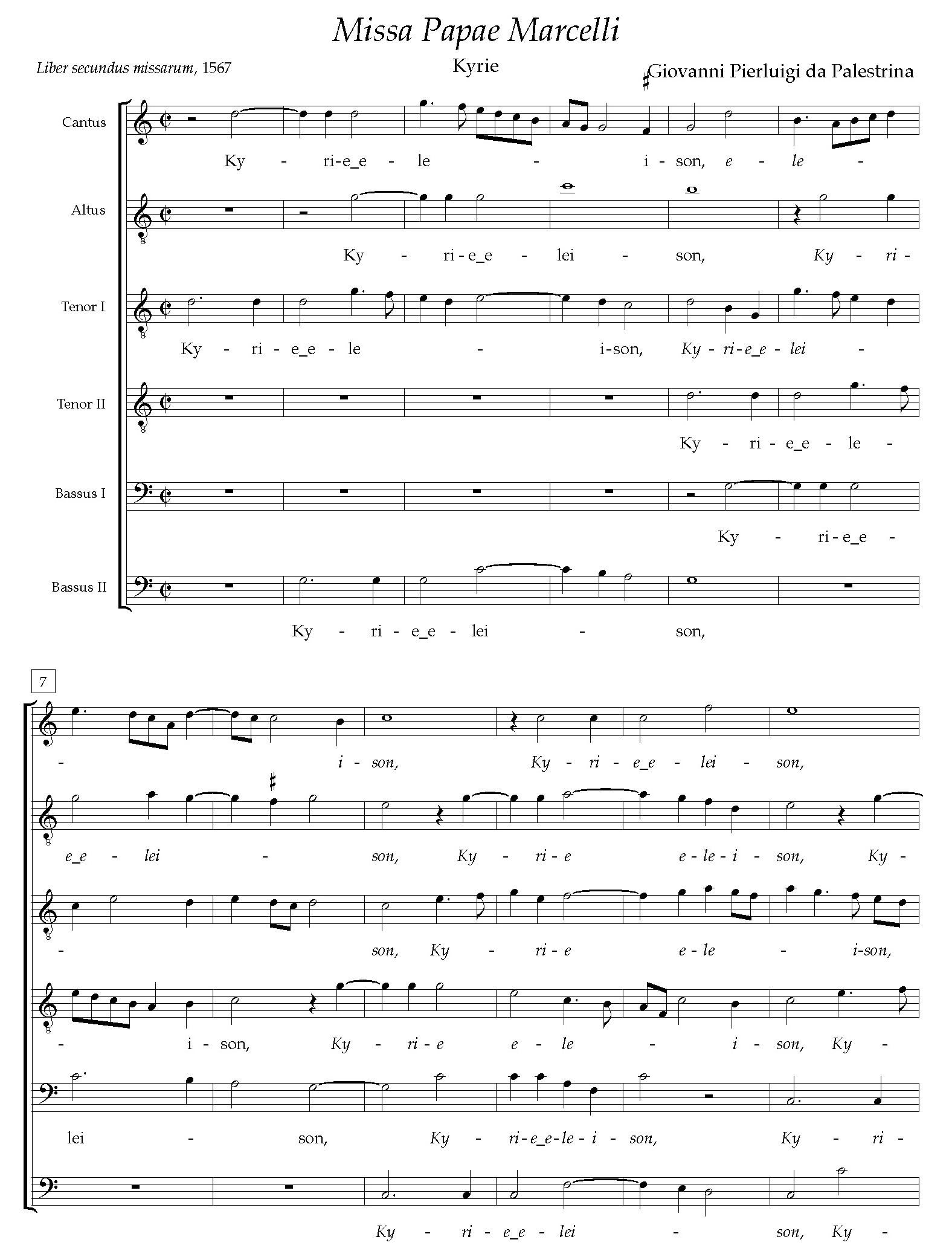
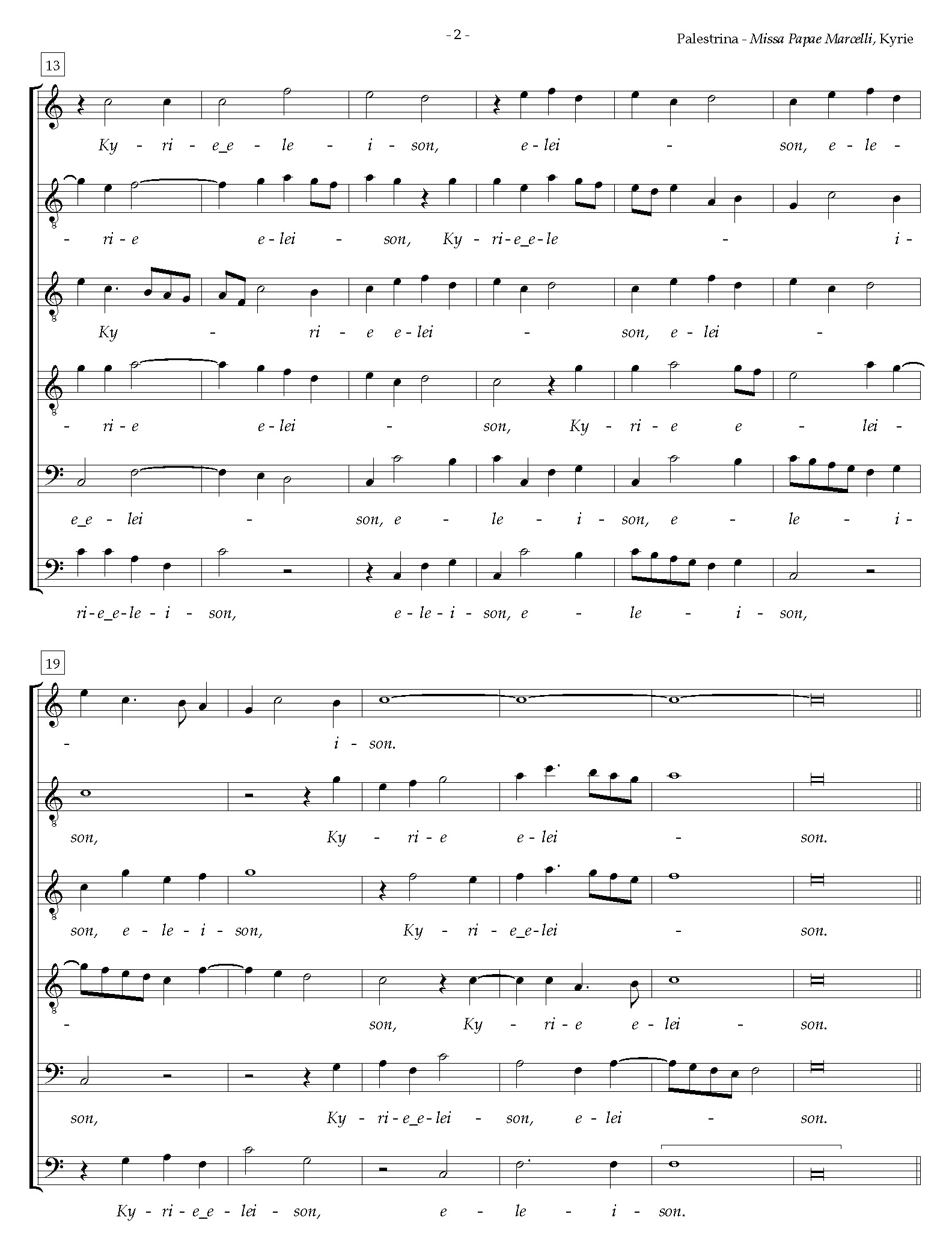
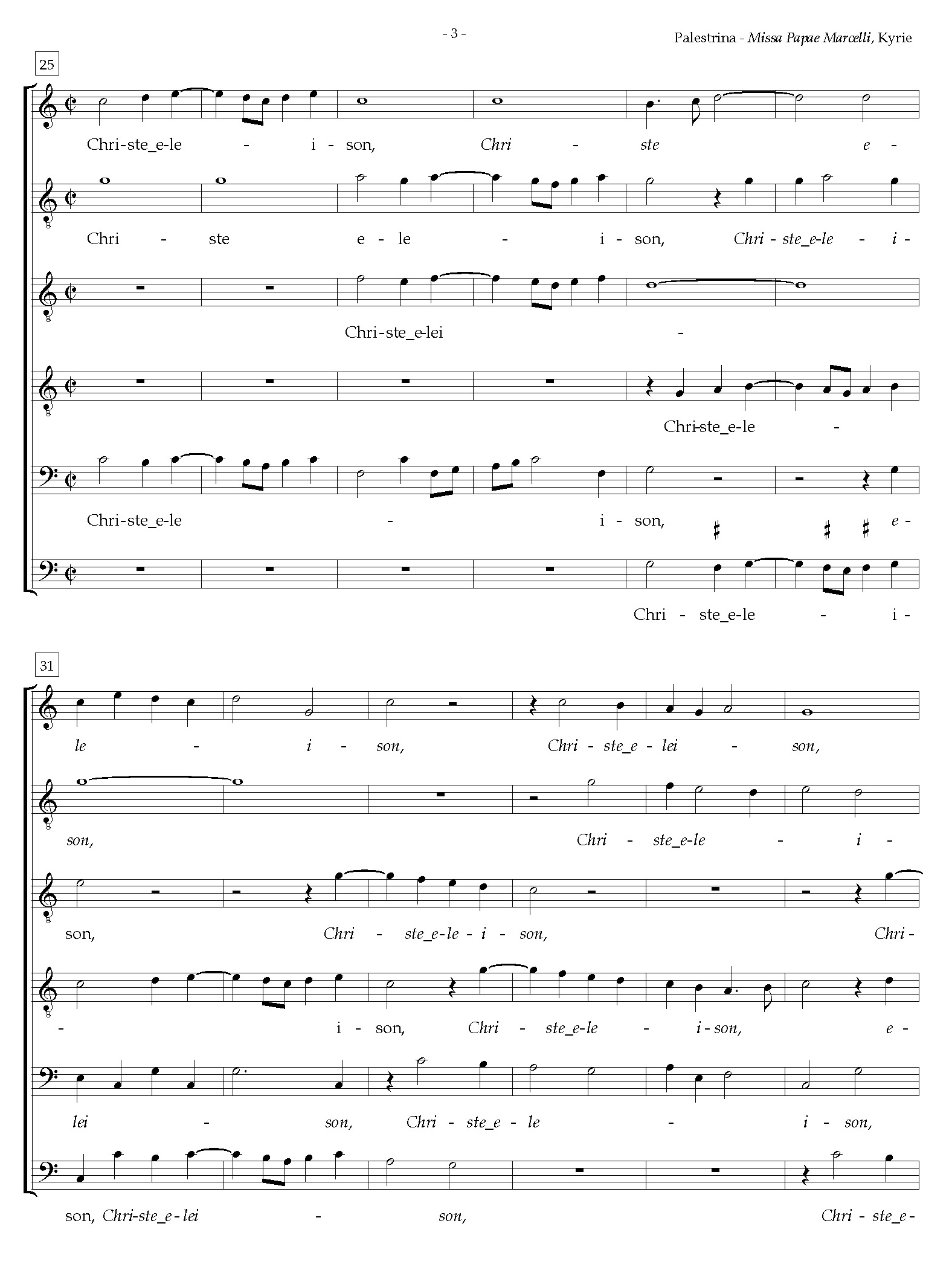
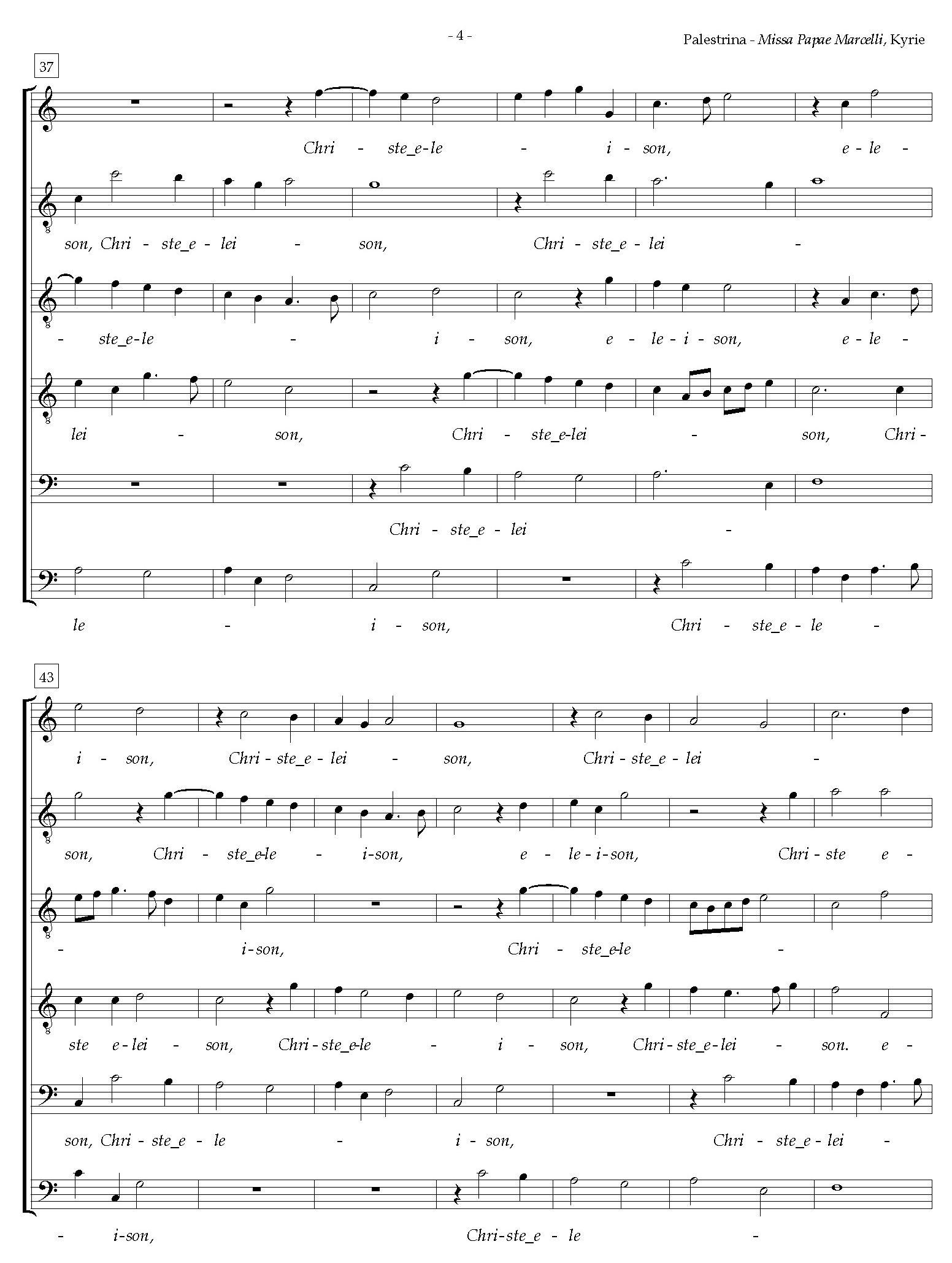
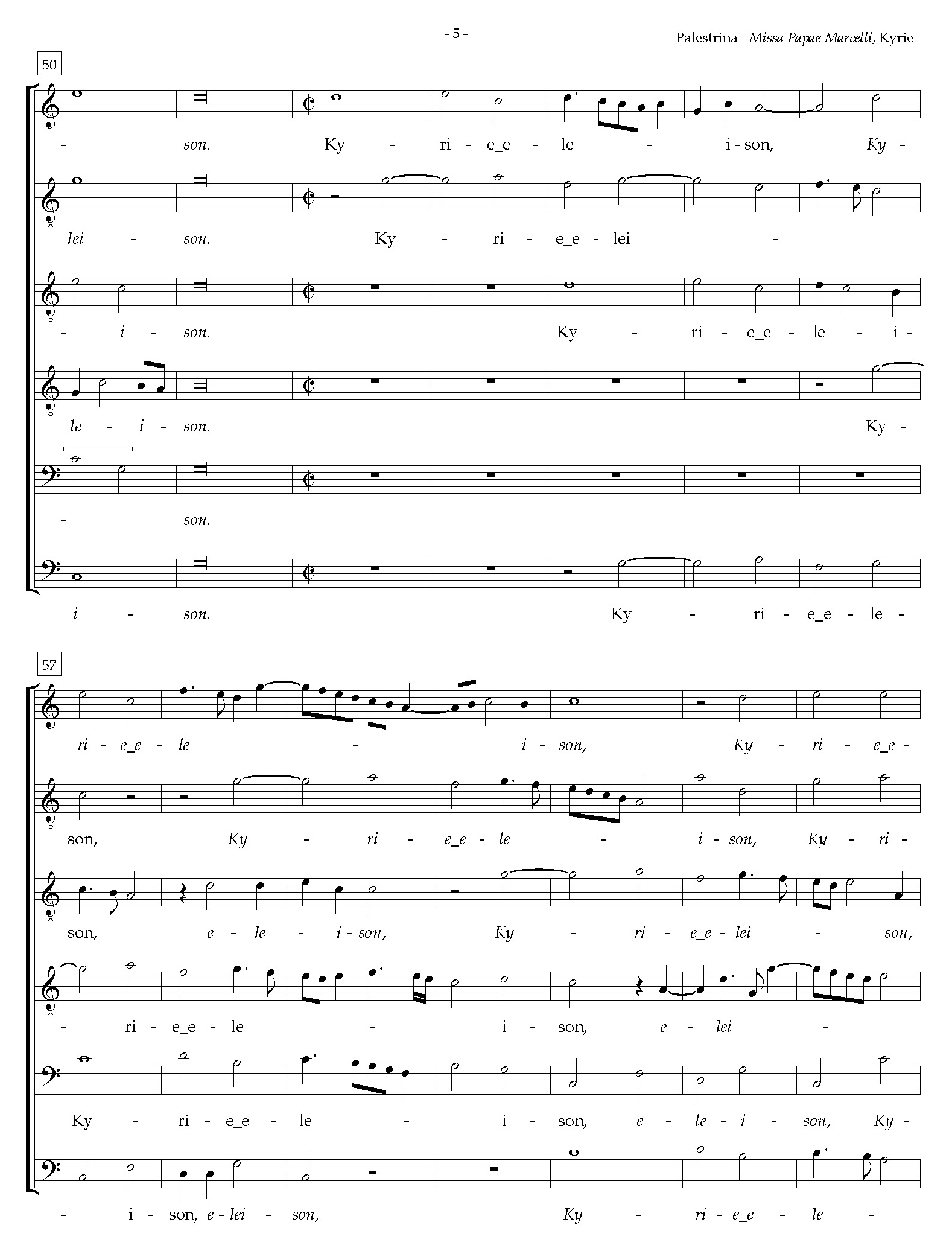
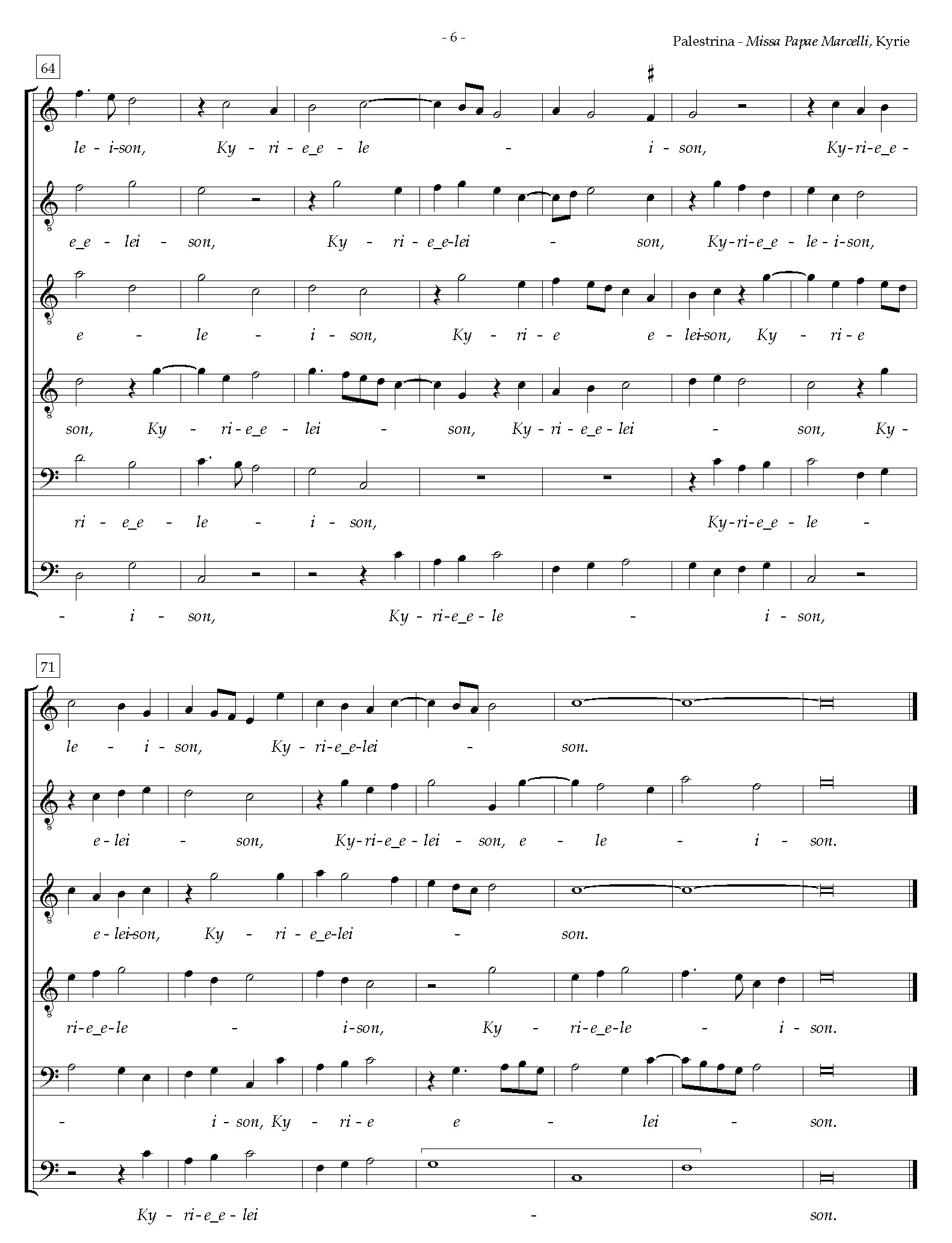
|






